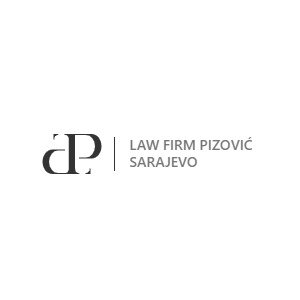Best Labor Law Lawyers in Sarajevo
Share your needs with us, get contacted by law firms.
Free. Takes 2 min.
List of the best lawyers in Sarajevo, Bosnia and Herzegovina
About Labor Law in Sarajevo, Bosnia and Herzegovina
Labor law in Sarajevo, Bosnia and Herzegovina is governed by a comprehensive set of regulations designed to balance the rights and obligations between employees and employers. This includes regulations at both the state and entity level, such as the Federation of Bosnia and Herzegovina and Republika Srpska. The laws cover a broad spectrum of employment-related issues, including employment contracts, working hours, wages, health and safety, discrimination, and dismissal procedures. The legal framework aims to ensure fair treatment, protect against exploitation, and foster a safe and equitable work environment.
Why You May Need a Lawyer
Individuals and businesses may require legal assistance in labor law for various reasons, including:
- Disputes over employment contracts or terms of employment.
- Unlawful termination or discrimination in the workplace.
- Issues related to wage and hour claims, including unpaid wages or overtime.
- Harassment or hostile work environment claims.
- Understanding and complying with workplace health and safety regulations.
- Navigating the complexities of collective bargaining and labor union negotiations.
Local Laws Overview
Several key legal provisions are particularly relevant to labor law in Sarajevo and across Bosnia and Herzegovina:
- Employment Contracts: Employment relationships are typically formalized through written contracts detailing job responsibilities, working hours, and salary.
- Working Hours: The standard workweek is 40 hours, with regulations governing overtime, night work, and breaks.
- Minimum Wage: There are statutory minimum wage levels that must be adhered to by employers.
- Health and Safety: Employers are obligated to ensure a safe working environment, in accordance with specific safety regulations.
- Non-Discrimination: Laws prohibit discrimination on various grounds, including gender, age, and disability.
- Termination and Severance: There are rules regarding lawful termination, with requirements for notice periods and severance pay in certain circumstances.
Frequently Asked Questions
What should an employment contract include?
Employment contracts should include the job title, duties, salary, working hours, and other relevant terms such as probation periods and notice requirements for termination.
How is overtime regulated?
Overtime work is subject to additional compensation, typically at a higher rate than regular hours, and is regulated to prevent excessive hours that could lead to worker fatigue.
What are my rights if I believe I've been unlawfully terminated?
You have the right to challenge an unlawful termination in court, and it may be beneficial to seek legal assistance to understand your case and potential remedies.
How can I address discrimination at work?
Document incidents and report them to your employer or a relevant authority. Legal recourse may involve filing a lawsuit for damages if the issue is not appropriately addressed internally.
What protections are there for workplace safety?
Employers must comply with occupational health and safety laws. Employees can report unsafe conditions to workplace inspectors or relevant governmental bodies.
How do labor laws address maternity leave?
Maternity leave is provided under labor laws, with specific durations and benefits outlined, and employer policies must comply with these legal standards.
Can I join a labor union?
Yes, employees have the right to join and participate in labor unions, which provide collective bargaining and other forms of employee representation.
What is the process for dispute resolution in labor law conflicts?
Most disputes begin with internal resolution mechanisms or mediation, with the possibility of escalating to formal legal proceedings if necessary.
Are there any special considerations for foreign workers?
Foreign workers must comply with additional requirements like work permits and are protected by the same labor laws once properly employed.
What role does the Labor Inspectorate play?
The Labor Inspectorate ensures compliance with labor laws through inspections and can take corrective actions against employers who violate regulations.
Additional Resources
For further assistance, consider reaching out to the following organizations:
- Federal Ministry of Labor and Social Policy
- Republika Srpska Ministry of Labor, War Veterans and Disabled Persons' Protection
- Cantonal Labor Inspectorates
- Trade Union Confederations in Bosnia and Herzegovina
- Non-Governmental Organizations focusing on labor rights
Next Steps
If you believe you require legal assistance in labor law, consider the following steps:
- Document all relevant information and instances related to your case.
- Consult with a qualified labor lawyer familiar with local laws and practices.
- Explore mediation or arbitration as an alternative to formal litigation.
- Contact local labor unions or relevant governmental bodies for support and advice.
Lawzana helps you find the best lawyers and law firms in Sarajevo through a curated and pre-screened list of qualified legal professionals. Our platform offers rankings and detailed profiles of attorneys and law firms, allowing you to compare based on practice areas, including Labor Law, experience, and client feedback.
Each profile includes a description of the firm's areas of practice, client reviews, team members and partners, year of establishment, spoken languages, office locations, contact information, social media presence, and any published articles or resources. Most firms on our platform speak English and are experienced in both local and international legal matters.
Get a quote from top-rated law firms in Sarajevo, Bosnia and Herzegovina — quickly, securely, and without unnecessary hassle.
Disclaimer:
The information provided on this page is for general informational purposes only and does not constitute legal advice. While we strive to ensure the accuracy and relevance of the content, legal information may change over time, and interpretations of the law can vary. You should always consult with a qualified legal professional for advice specific to your situation.
We disclaim all liability for actions taken or not taken based on the content of this page. If you believe any information is incorrect or outdated, please contact us, and we will review and update it where appropriate.











